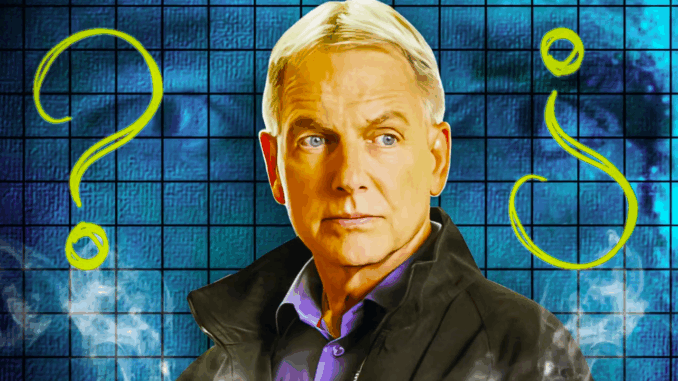
Even without Mark Harmon on-screen, NCIS can’t escape the long shadow of Leroy Jethro Gibbs.
When NCIS premiered in 2003, no one predicted it would become the television juggernaut it is today. And no one embodied the show’s core more than Mark Harmon’s quietly intense, rule-making, emotionally scarred character, Special Agent Gibbs. Though Harmon officially exited the main cast in Season 19, Gibbs remains—strangely and powerfully—at the heart of the show in Season 23.
Why does NCIS still feel like the Gibbs show, even in his absence?
The Ghost in the Bullpen
Since Gibbs retired to Alaska, newer team leader Alden Parker (Gary Cole) has stepped up with his own brand of leadership—more collaborative, lighter in tone, and, at times, surprisingly vulnerable. But the writers haven’t let Gibbs go. Characters still mention him with a reverence reserved for a ghost in a cathedral. His name appears more often in dialogue than that of some current team members.
In the Season 22 finale, a particularly quiet moment between McGee and Palmer found both men reflecting on “what Gibbs would have done.” These callbacks aren’t lazy nostalgia—they’re intentional anchors.
Rule 51 Still Applies
Gibbs’ famous rules—first introduced as quirky team guidance—have grown into a kind of operating system for the entire NCIS universe. “Never be unreachable,” “Always look under,” and the iconic “Never apologize—it’s a sign of weakness” still echo in team decisions, even when Parker is the one calling the shots.
In a recent Season 23 episode titled Echoes, a cryptic message left at a crime scene referenced Rule 51: “Sometimes you’re wrong.” Fans immediately connected the clue to Gibbs, igniting Reddit theories about a possible return, even if only in voice or flashback.
Harmon Without Gibbs?

Interestingly, there have been quiet industry murmurs about Mark Harmon’s continued involvement with NCIS behind the scenes. He’s still listed as an executive producer, and several writers have alluded to his creative input. In many ways, Gibbs now exists in the show the way Dumbledore does in later Harry Potter books—not present, but always watching.
Could Harmon ever return, even briefly? Executive producer Steven D. Binder has said, “The door is never closed. Gibbs is a part of this family.”
A Different Kind of Legacy
The newer cast—especially Katrina Law as Jessica Knight and Sean Murray’s seasoned Timothy McGee—has found its rhythm. But NCIS has become an ensemble where every agent seems to measure themselves against an invisible standard: what would Gibbs do?
And in doing so, the show crafts a fascinating narrative: how institutions (like the fictional NCIS itself) carry on after their most iconic leader is gone. It’s not about forgetting. It’s about evolution.
What’s Next?
Season 23 has hinted at larger themes—about surveillance, accountability, and the moral gray areas of justice—that would’ve resonated deeply with Gibbs. Whether or not he physically returns, his influence is written into every decision the team makes. Gibbs is no longer just a character; he’s a philosophy.
So perhaps the real twist of modern NCIS isn’t in its cases, but in its ability to carry on with a soul that’s still present even in absence.
Because NCIS isn’t just a procedural anymore—it’s a story about how people move forward while honoring what came before.